Lew Bonaventure
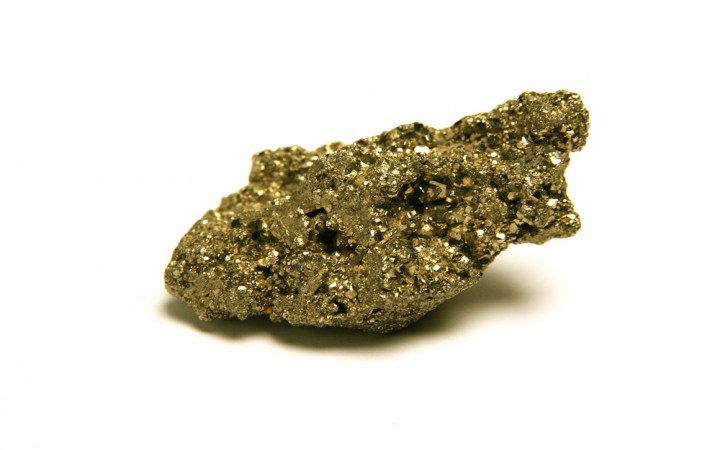
Fool’s Gold.
“There’s no use anyone telling you that you’re making a mistake,” John Lee said, “because you’ve got yourself locked into a fool’s loop. Anything I tell you feeds your suspicion, and anything I don’t tell you feeds your suspicion. But it has nothing to do with Lew Bonaventure. Your particular mania is founded in the inability of mankind to accept that something can be good at face value, without analyzing it and, by that, killing it.”
“It sounds crazy when you put it that way,” Ken said, “but I’m simply asking to meet Lew Bonaventure. A material witness to the perfection that is Nowhere, New Mexico. Supposedly, he’s a citizen of the town, a founder, and thus he’s important to the history of the place.”
John Lee tapped a cigarette out of a pack and put it between his lips. “Lew’s a private guy like you’ve been told. So, let’s pretend that you were a private guy. Say you moved out into the middle of… well, literally Nowhere to get away from the rat race… and say you didn’t want to interact with people except on your own terms. Is there anything wrong with that?”
“Well, no, I suppose not.”
“Ok,” John Lee said, “and now let’s say a reporter didn’t like you having the freedom to choose how and when you interact socially. Would that create some burden on you to violate your own conscience or your own preferences about how you live your life? Just because some other schmo is curious?”
“Certainly not.”
“Does some extra sub-amendment exist to the freedom of the press that says that a private citizen can’t remain private if he wants?”
“Now you’re being ridiculous.”
John Lee lit the cigarette. “Isn’t that what’s happening here?”
Ken sighed. “No, It’s not. No one is requiring anything of anyone! C’mon, John Lee. Bonaventure exists, IF he exists, as a free man, and so do I. I have a job to do as a free man, and if Mr. Bonaventure doesn’t want to meet with me, that’s his right. But it would be unreasonable for him or you or anyone else to expect that I would become less curious when the principal witness to the creation and foundation of the town I’m writing about refuses to even provide some evidence that he exists. You have to admit that it looks… at the very least… interesting. And magazine writers write about interesting things. That’s what we do.”
None of this swayed John Lee in the slightest. “I’m just asking that you not let one man’s right to privacy color your opinion about the rest of us and about the town. Bonaventure exists. He lives outside of town in a mansion. He doesn’t like attention. He doesn’t come to town much at all.”
“Then take me there.”
“I can’t. Not without his permission.”
“There’s no permission needed for me to just see the place,” Ken said.
“Halberson, if you only intend to see the place, then you don’t need me. It’s a gated compound. Scratch that. The word compound sounds mysterious, and you reporters like to use such words to create a negative idea about something. It’s his yard. You can see the house from the road, though. It’s nice. I’ve been there.”
“I’ve asked a half-dozen people to take me out to see the man,” Ken said. “No one will.”
“Is it that hard to imagine that in a town of friends, no one wants to assist one friend in intruding on another friend in a way that would be unfriendly? Take off your reporter hat for five minutes and just be a human being. You might find that you like the feeling.”
***
The first time I drove to Bonaventure’s was in the mid-afternoon a few days after my fruitless conversation with John Lee Danner. I located the place and drove by it several times. The main house was nothing at all like Hearst Castle, a place I’d been before, but it was quite a mansion. It wasn’t a pretentious edifice built in the English, French, or other European styles. It was very American. Not ostentatious at all, but it still made a statement. That statement was this: The owner built exactly what he wanted and nothing that he didn’t. No corner was cut or benefit was left out because of a lack of means. That is to say, that money was no object but nothing was done superfluously for the sake of show. If there was no tennis court, it was because the owner didn’t play tennis, not because he couldn’t have afforded a dozen tennis courts if he’d wanted them. Everything was in the finest style and of the best quality, but there was nothing there merely because a rich person would have it there.
The house was low and sprawling, somewhat ‘ranch style’ but not western at all. It was modern. In a fashion that could have been designed by Frank Lloyd Wright, and in fact, may very well have been. I’d been in several Wright-designed buildings, and this did look like one. The only part of the structure that rose above a single story was a large, circular section of the house built on stone pillar “stilts” with the covered space under that circular portion being a parking area. The round room, like the rest of the house, had windows nearly floor to ceiling and commanded a dramatic 360-degree view of the estate, which Ken imagined was stunning when the sun was setting into the orange and purple mountains in the distance.
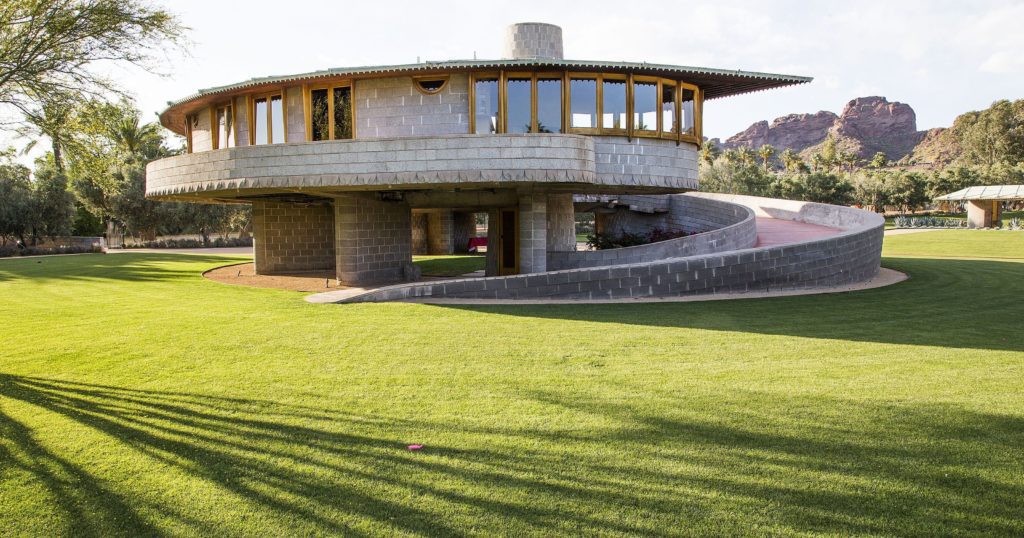
There was substantial worker activity around the property; lawns being mowed, gardeners moving around the estate grounds watering flowers, and pruning trees. Other workers dragged water hoses or hoed weeds in the gardens. Two white panel vans were parked in front of the mansion with the back doors standing open.
I wanted a better look but didn’t care to arouse suspicion and I couldn’t get close with so much service activity on the property, so I drove back to town and sat in my car in front of the Dipsy Doodle drinking a Coca-Cola and writing notes until the afternoon began phasing into the cool evening. I drove out Northwest again just at dusk, out past the last vestiges of town and maybe five more miles until I saw, once again, the Bonaventure estate silhouetted to the west, beautiful yellow-gold accent lights just blinking on in the fading light. I pulled off the road and into a copse of trees thirty yards before the beginning of the long estate fence which ran along the south side of the roadway. I noticed that there was a dirt road where I was parked leading through the trees toward the back of the property.
I sat for a few minutes and watched as the two vans, headlights on, exited through the entry gates and turned toward town. They passed me and I was sure they didn’t see me. Shortly after that the other maintenance trucks and vehicles with employees in them exited through the main gate and headed back to Nowhere. Another thirty minutes of watching and it was fully dark. I thought it odd that the service personnel used the front gate, and I couldn’t imagine that this would be the policy when there is an obviously well-used road that circled to the back of the property. I’ve visited the homes of major league baseball stars and owners, millionaire publishing magnates, newspaper owners, Hollywood starlets, and movie financiers and I’d never been in a mansion that let service and maintenance personnel use the main entrance when a back entrance was available. This convinced me that Bonaventure wasn’t ‘in-residence.’ He wouldn’t be home. The road to the back of the property was well-worn, so I deduced that when Bonaventure was home the workers would have used the back entrance.
Now, there was no activity at all anywhere in the estate. No interior lights, no movement, no vehicles to be seen. No security was evident. I got out and walked the perimeter of the fence for what seemed like a mile or two. I reasoned that if there was some form of security, a stranger walking the fence line would alert them soon enough and then I’d know. If security guards came to meet me, I’d tell them I’m just a reporter writing a story. Not trespassing at all. In the back of the property, I found the service gate and there was a road exiting the gated area that headed in two directions. One, to the front where the Packard was parked, and the other headed out due west into the desert. I continued examining the place but after an hour of reconnaissance, the curiosity got the better of me. I jogged back to the car (my limp reminding me how rarely I jogged,) then drove to the back of the property. Seeing no signs of life or movement at all, I took my flashlight from the glove box, scaled the back fence, and began officially trespassing. But I didn’t plan on doing any breaking-and-entering. I would keep my crimes to the minimum necessary to accomplish the task. I looked through the windows all around the place, even climbing the curved drive that led in the rear to the large, raised, circular portion of the home.
There was nothing to see. And by that, I mean there was nothing in the house. It was empty. No furniture. Nothing. No sofas, television consoles, wireless radio sets. No dining tables or chairs. No settees. No beds. No bureaus. There weren’t even footprints in the plush carpeting in the circular living area.
There were personal items in the house, of course: expensive-looking paintings on the wall, photographs I couldn’t make out, and other styles of artwork: wood carvings, bronze statues, and modern art pieces. There were ornate lighting fixtures, obviously custom. In the kitchen there were appliances. But other than those things, the house was empty. If anyone had ever lived there, they weren’t living there now.
That meant that Lew Bonaventure wasn’t living there.
I sighed deeply at that moment because the whole picture was beginning to come clearly into view. I jumped the fence again and started the Packard. This time instead of steering toward home, I took the road heading into the desert.

***
I collected Kate at her house an hour later and smiled and kissed her (“It’s been a long, long time, Mr. Halberson.”) She wore a baby blue cocktail dress that made the blue in her eyes stop my heart, and she was keen on doing a happy hour somewhere. I didn’t let on about my suspicions. I was of two minds now. Part of me wanted to forget my stupid job and forget the article and just let it all go. Who cares if Lew Bonaventure exists? Who cares if the gold legend was a convenient myth all along? Who cares if the people of Nowhere had moved there believing a lie? The other part of me cared very much about all of those things. I’d been in enough war zones to know that lies lead to very bad things. The Germans before the war and the Russians since 1917 had learned to live by lies and their people had paid dearly for those lies, but I couldn’t imagine that Americans would ever want to. The first part of me just wanted to love Kate, and to get married and to live happily ever after in the greatest town I’d ever known. The other part wanted to expose the whole thing, blow the lid off the place, because maybe (and this was just the beginning of a thought) if Kate knew that the whole Nowhere story was a myth, she’d be fine with leaving with me. Perhaps, if she knew the truth, she’d come back with me to Schenectady. Or we could move to California or Colorado. Anywhere rather than Nowhere.
Perhaps.
We drove over to The Brick and we took a table and ordered cocktails. Kate was in a good mood and wanted a Manhattan and I ordered a Gin Rickey. The place was buzzing in high spirits and the small jazz quartet that had set up outside of the Downtowner Hotel on the night of the Spring Ball was playing low and slow for background music. Leon McClain and Carol Cole came by and joined us, and for a half-hour, I completely forgot about my worries, about my suspicions, and about the mystery of Nowhere. It was Happy Hour, and I was happy.
“Leon,” I said. “How have you been? Since I moved downtown, I don’t see you as often as I’d like.
“We’ve been very well,” Leon said. “And we have some news for you two.”
“Oh!” Kate almost squealed. “News?”
“We do have news,” Carol said. “Very interesting news!”
“Do tell,” I said.
“Well,” Leon said, “Ken, do you remember when you first got here and you believed that I was a homosexual? Do you remember that? You believed it because… ahem… someone was gossiping and told you that?” He looked with mock disappointment on his face at Carol.
“I do remember that,” I said.
“Oh my, this is delicious!” Kate said. She was so excited and giddy that she could barely remain in her seat.”
“Carol here was speaking on something she knew not of I guess you would say. And do you remember, Ken, do you remember when I told you I was in love with a woman?”
“Please do hurry and tell the news!” Kate said. She clapped her hands and was perched on the edge of her seat.
“Well, as you may as well know, the woman I am in love with… that I’ve been in love with for many, many years… is Carol Cole.”
Kate squealed this time. “Ooooooooooh!!”
“And we’re getting married,” Carol said. She’d wore white gloves but she pulled off the one on her left hand and showed Kate her engagement ring.”
“Oh my! I’ll die! I’ll simply die of happiness!” Kate squealed again. “When? When?”
“We’ll be officially hitched in October. When the weather cools and the nights are perfect. Our autumns here are so beautiful!”
The conversation went on for some time. They’d be married at Bix’s in the ballroom, of course. Simply everyone would be invited. John Lee would be the best man, and would Kate do the honor of serving as the bridesmaid. More squealing and clapping.
While this was going on I looked to the bar and I saw an old friend. Abe Mendoza and another man were sitting at the bar and had just ordered whiskeys. I excused myself from the engagement announcement and walked to the bar.
Abe and his friend Leonard had driven a new car over from Albuquerque, and, rather than stay the night to head home tomorrow, they were having a drink and ordering a bottle for the return trip that night. Abe was very glad to see me, called me “My good amigo!” and hugged me. His friend Leonard shook my hand and told me “Any friend of Abe’s is a friend of mine!” We ordered another round of whiskeys, lit cigarettes and chatted for a bit.
“Do you think you could send a telegram to my boss back in New York? His name is Edward Kramer Thompson. You’ve sent him a message for me before.”
“I’d love to do it,” Abe said. “Is this another one of your nonsense
messages of numbers and letters? I told my wife you were a gambler and the code was so you could continue to place bets while you were on duty.”
I’d stopped at the apartment and coded a message after I left Bonaventure’s place and I’d intended to give it to Copeland if I could find him out and about that night. I handed the message to Abe and asked him to send it as ‘Urgent,’ and told him that if he didn’t mind doing it, if he could radio a reply back to Copeland whenever he received a response from Thompson.
“No problemo, Amigo,” Abe said. “Anything for my good Yankee friend.”
Abe and Leonard finished their drinks, took their bottle of bourbon and waved goodbye while I rejoined Carol, Leon, and Kate who’d ordered bottles of champagne and were well into a lubricated celebration.
***
The message Ken Halberson sent to Thompson that night was this:
Thompson,
Things here are much more interesting than I imagined. I have suspicions that the whole thing is some kind of con game. As to what the con is, I have no idea as of yet. I need some intelligence if you can arrange it. Pull strings. I know you have your ways. I want to know if there has been any noticeable increase in the gold supply since 1946 or so. Anything that would indicate that more gold is in circulation since then. I need that information as soon as possible, so if you get something please send a coded telegram to Abe Mendoza in ABQ. In a separate package, and there is no huge rush, I’d like any information on a bandleader popular in the 40s by the name of Dick Hager. If things are how I think they are, we’ll have a hell of a story to tell.
K.H.
***
I dropped Kate at her house around midnight. She very much wanted to go home with me to my apartment, and believe me I wanted her to, but I fought off the urge to say yes. It took everything I had to tell her I wanted to wait. I wasn’t going down that road. Not until I could get all of this sorted out and only after I knew that Kate would stay with me no matter what happened with my story.
At around 3:00 a.m., I returned to Bonaventure’s mansion. I knew there was more to learn because the day before when I drove out to the desert, I found something I suspected I was going to find there. A landing field. A private airfield with a long enough runway to handle large cargo aircraft. If my suspicions were correct, the supply mystery of Nowhere, New Mexico was going to be solved by me before the break of dawn.
I parked the Packard in the trees, way off the private dirt road, and I waited. At around four o’clock, still pitch dark and the stars shining in the firmament as witnesses, the trucks arrived from Nowhere. The four rigs from Nowhere Trucking and Supply arrived on cue and turned off of Northwest onto the dirt road that headed to the airfield. I waited twenty minutes and then followed on foot.

It was quite a walk, made tougher by nothing but the sliver of a moon providing available light, but I stayed on the road and then found a good vantage point and watched and waited. A half-hour later, the first of two C46 Commando cargo aircraft appeared in the distance above the mountains, circled low from the west, and landed, taxiing right up to the big rigs where the airplane was unloaded. The second landed and waited while the first was emptied of its treasures. When the contents of the airplanes had been divided into the trucks, the two aircraft taxied back and took off, banking elegantly and climbing out low and slow heading back to the west. The way the two aircraft arrived and departed would not have been seen by anyone in Nowhere, unless someone happened to be on the rooftop of the Downtowner at 4:30 a.m. and happened to look out to the northwest.
The mystery was solved.
I went home and slept well and at 9:00 a.m., when I left my apartment to walk to the Bistro District for coffee and breakfast, there was an envelope on my welcome mat. It was from Copeland and in the envelope was a coded message from Edward Kramer Thompson. I stepped back inside and decoded the message:
Halberson,
It seems like you’ve gotten your teeth into something. The answer is
simply “NO.” My friend in the Treasury Department reports that there has been no noticeable anomaly in the gold supply. No unusual increase in the gold supply. They track that sort of thing in case a foreign government is smuggling gold to exchange for U.S. Dollars. Anyway, I don’t know what this does for your story, but that’s what I found out. As to the other issue, the file on the man you inquired about, it will be sent in a separate package to you soon.
EKT
Over my black coffee and a gorgeous omelet on Chestnut Street, I settled it all in my mind. That was it. The gold legend was a hoax. I had no lingering doubts. It seemed to me that this meant that the almost endless supply of money that supported Nowhere must be coming from Copeland’s massive inheritance. The legend of Lew Bonaventure was a carefully crafted fraud. Copeland was Bonaventure, I was sure of it. Or, as sure as I could be. And all I had to do now was confront the man with what I knew. As to the “why” of all of it, I still didn’t know that, but I was hoping that Copeland would tell me.
***
“It’s not true,” Copeland said. Halberson had made an appointment at the bank to meet Copeland in his office in order to confront the man, and when he did, Copeland didn’t seem to be shocked or surprised at what Ken had found. If he was a cult leader or a manipulator, he was a master at it. “You have yourself an interesting theory, but it will fall apart when you learn of the things you don’t know. This is a common thing, people with incomplete information getting things wrong. We fed Hitler false data all the time knowing he’d run off with partial information and draw the wrong conclusions. We even built whole faux armies out of inflatables and cardboard. The man, narcissistic and self-deluded, thought we were going to land in Calais on D-Day, but… well… you were in the first wave that landed at Normandy, weren’t you? The deception operation was called ‘Operation Fortitude,’ it was a master ruse that worked, and it saved the world. And while that situation was based on trickery, the fundamentals of self-deception that caused Hitler to guess wrongly are the same. He had some partial information, some wrong information, and he drew the conclusions that he wanted to draw based on his peculiar personality flaws and his pride. No inflatable divisions here, but you’ve taken some facts, some partial information,
some wrong conclusions, and you’ve made a determination based on proclivities perhaps you don’t even know that you have. I’m sure you’ve heard the story of the four blind men who all come across an elephant. There are a million versions of the story, but they all have the same point. One of the blind men embraces the animal’s huge leg and says, ‘It’s a tree, I can tell.’ The second blind man touches the elephant’s trunk and says, ‘No, it’s a snake. I’m sure of it.’ The third blind man touches the tusk and says, ‘Certainly, it is a species of longhorn cattle.’ The fourth man touches the chest and says, ‘It is a very large horse.’ But, they were all wrong, Halberson. It was just an elephant all along.”
“That’s a very charming parable,” Ken says, “but I don’t believe that there is a Lew Bonaventure. That’s a stone-cold deduction. I’ve not met anyone who can prove to me that they’ve met him. He is, as they say, ‘unavailable for comment,’ and I believe it is because you made him up. If not, then prove it. His house is empty. There’s nothing in it. It’s a set piece for a very expensive deception, so in that respect, your Fortitude story rings true. You’ve done this before. I still haven’t figured how fuel and electricity are provided to the town, but I know that all of the other supplies are brought in by C46 cargo aircraft coming from the west. Probably from California. I was in the military, and I know what I’ve seen with my own eyes.”
Copeland smiled. “These are not mysteries, Ken. The fuel comes in by way of a pipeline that Bonaventure had brought in from Albuquerque. The gasoline originates in the refinery in Gallup. The fuel, once it arrives here, is trucked in our own fuel truck to the gasoline stations around town. As for the electricity, Lew built a natural gas power plant when he first found gold in ’46. With some clever efficiencies, the town does not require as much power as you’d think. We’re in a temperate climate and it doesn’t get that cold in the winter, and our evenings in the summer are cool because of the desert and the low humidity. You’d have found the plant out near the airfield if you’d trespassed a bit longer.”
“The sheer expense of what you are proposing would be astronomical,” Ken said. “I’ve lived here for months, and I’ve never received an electric bill. That sort of thing would never pay for itself in a million years. IF you were actually charging people.”
Copeland nodded. “This is true. It is an act of philanthropy from a very good man. A good friend. And as to the house, did you see three shipping containers as you cased the property?”
Ken remembered seeing them. He nodded.
“Well, that’s where Lew’s furniture is. He was having the floors and carpets cleaned. Perhaps you saw the cleaning vans while you were there.”
“All very convenient,” Ken said.
“The truth is often that way. All part of a cavalcade of circumstances that have led you to a false conclusion.”
“Then I want to meet him. I want to talk to Bonaventure.”
Copeland pushed himself away from the desk and stood, holding his hand out to Halberson who shook it. “You are a man who thinks that because you want something, someone else ought to provide it. That is the root of your problems. But, I will arrange it, because in this case, if you are to make a monstrous error, I prefer that the error be entirely yours and yours alone. Give me until tomorrow. I’ll ask John Lee to make it happen.”
“Ok.”
“I’m sure you’ll find that there is nothing suspicious going on, Mr. Halberson. Nothing at all. And Ken, no one is trying to hide anything from you. And if they are, it is merely circumstantial in order to protect what we have here. Nothing malicious or sinister. You’ll see. We have a particular worldview here, the idea that people ought to be left alone to live their lives as they wish. It’s not in fashion anymore, but it’s the way we think.”
***
I picked up John Lee at his apartment. He was expecting me.
“I see you’ve had an… eventful… couple of days, Ken.”
“I might use the term revelatory in the article.”
“Well,” John Lee said, “let’s see if we can go disabuse you of some of your misconceptions.”
We drove to a saloon out on Northwest. I’d passed the place it a few times on my drives, but I’d never stopped there. It was called Calvin’s Tavern and it was a small bar attached to a motor home park. The place was dark, but not in a scary way. More of a ‘blue-collar day-drinking’ way. We took a table near a jukebox that played soft tunes from crooners like Bing Crosby, Dick Haymes, and Peggy Lee. I never saw anyone put any nickels in the machine, but it played anyway. Haymes’s song You’re Just in Love, a song he sang with Ethel Merman, was playing as we sat down.
We weren’t there long, drinking Kentucky Bourbon when a man approached.
“Is this the gentleman disturbing my privacy?”
It wasn’t said with any hostility and the man who said it was smiling as he held out his hand. I shook it and we stood for a minute as introductions were made.
“Ken Halberson, LIFE Magazine,” I said.
“I know very well who you are, Mr. Halberson. Lew Bonaventure. I’m certain you know who I am as well.
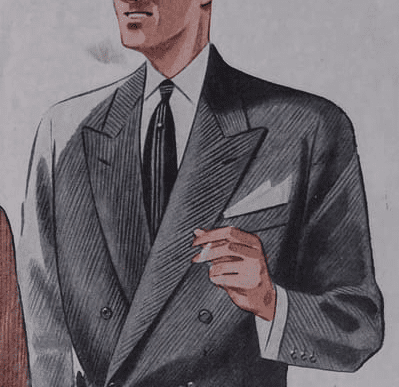
The man was well dressed, but not flashy. He had a pinky ring which seemed to be his only wink at extravagance. His hair was short, and he was graying at the temples. Mid-40s, maybe early 50s, and well built.
We sat and Bonaventure waved to the bartender who brought the bottle of bourbon and another glass. “I suppose you know that I’m meeting you under some level of duress, Halberson. I prize my privacy and I’m not bragging to say that I’m a man of some means. I’m not used to being summoned to meet with journalists, even heralded ones, no matter the circumstances. Though out of friendship to Mr. Copeland and my friend John Lee here I’ve surrendered to convention.”
“Well, I’m pleased that you could meet with me,” I said. “Although a lot of the awkwardness might have been avoided if I could have just met you out and about some evening.”
“I do not go ‘out and about’ much, Mr. Halberson.”
“Call me Ken.”
“Ok, Ken. And you may call me Lew. I don’t go out much, Ken, because that is my preference. Think of me as some redneck Howard Hughes. Only, I have more successfully protected my anonymity and privacy than has Mr. Hughes.”
I was looking at Bonaventure, and he seemed to be on the up-and-up, though there was something about him. Something. Some tickle of a spark in the back of my cerebral cortex was firing. But, I can’t say that I was suspicious at that time. There was just something in me that held up a caution sign.
“Perhaps it is, as my friend Mr. Copeland says, something in your makeup. Some cynical flaw in your constitution. Maybe as a result of your war wounds, I don’t know. But it seems that you have chosen to take some random and coincidental occurrences and you’ve drawn a conclusion that departs from the reality of the situation.”
I smiled and took a sip of my bourbon. “Perhaps.”
“Well, let me disabuse you of some of your errors,” Bonaventure said. “I came here after the war. I’d determined that I was no longer comfortable in a society so eager to destroy itself. The ‘state’ had gained pre-eminence, and war makes it worse. I’d always been a bit of a history buff, and I romanticized the days of the old west. Particularly the stories of the ‘49ers and the gold rush out in California. I was a conscientious objector during the war. I hope that doesn’t offend you as a decorated soldier. I didn’t dodge the draft. I was 4F, but I don’t use that as an excuse. I wouldn’t have gone if they’d drafted me. I do give you heroes the honor and respect you are due, but war was not for me. I’d made a little money in the stock market, and I decided I was going to do what mountain men and homesteaders had done for centuries. I would do what the original men who founded the west had done. I’d leave society and make my own way. I came to New Mexico alone and after some rudimentary research, I thought I’d figured where there might be gold or silver to be found at the base of those mountains just north and west of here.”
“Fascinating,” I said. And it was. “What made you think there would be gold here?”
“I did my own research, and it turned out I was right. I found gold and a lot of it. More than you can even imagine, Mr…. Uh, Ken. I found the richest deposit of gold in the history of America.”
“So it seems,” I said. “And how is it that this find hasn’t become common knowledge? Why is it still a secret?”
“Well, the secret did get out. That is why this town is here. But I’m sure you’ve heard that story. However, the reason it didn’t become more widely known, is because Mr. Copeland came to visit me shortly after I’d found the gold. Maybe you’ve heard him mentioned cryptically in some of the legends as ‘Mr. Smith.’ He was one of Hoover’s men. A G-man. He came to investigate what I was doing out here surrounded on every side by secret government testing grounds and facilities. He wanted to know if I was a foreign spy.”
“And were you?”
Bonaventure laughed. “Of course not. And Copeland discerned that. But what he also discovered was a friendship. During the time he was here we became very close. Like brothers. And, after some time, Copeland had to tell his masters in Washington D.C. something, so he told them a small, white lie. He admitted I had found gold, but he didn’t tell them how much. He assuaged their curiosity, and they believed him. He went back to D.C. for a while, then he retired and made his way back here. In the meantime, he and I hatched a plan to fulfill our dreams of living in peace. It would be an experiment in self-government. We built a town. We used Copeland’s contacts in Washington to help keep us off the radar… literally. And we parceled out the gold very intelligently so that it wouldn’t make a splash. Some of it we sent over the border and down to South America. Some we sold into the black market. But we did it smartly so that we could build our town and live out our lives as free people. We built Nowhere. And now you’re here.”
***
That was the story. My cortex was still tingling, but I can’t say that Bonaventure’s story had any gaping plot holes. All of my questions weren’t answered, but it went a long way to explain some of the things I’d experienced in Nowhere.
After we left Calvin’s Tavern, John Lee and I went to his place and we drank some of his private stash of Kentucky bourbons and we talked some more. Kate arrived after a while, (I’d told her we would be there after dark.) Danner was working hard to satisfy my curiosity, maybe too hard, and with Kate there they both seemed to desire that I would just drop the whole story and just be in love with the town. And frankly, I didn’t know what to think. I know I wanted Kate. That I wanted to marry her and settle down. And I knew that I had a lot to think about. Bonaventure’s story didn’t solve all of my problems, especially the question of the gold. Even dripping-and-dropping the gold out would have been noticed by the people who get paid to notice such things. Unless Copeland knew someone in the Treasury who was covering up the increase in the gold supply, it would be hard to explain the logistics of getting that much gold and turning it into cash and resources for Nowhere.
And then there was the nagging feeling that I recognized Bonaventure somehow.
It was impossible. I knew that I’d never met him before. Had never seen him in town. He was a complete stranger to me. I had no reason to know him at all, but something aboapterut the man was familiar, like a face in a crowd or a half-dreamed half-forgotten memory. And I couldn’t drop the idea that something was still amiss.
After three or four more bourbons, John Lee excused himself to use the restroom. I lit a cigarette for myself and one for Kate, and as we waited, I stood and went to his record collection. I recalled from the last time I’d been here seeing the album from when John Lee Danner was Dick Hager and he led one of the most popular orchestras in the land. I thumbed through the albums until I found the one I was looking for.
Dick Hager and His Mighty Men.
There was Dick, who was now John Lee Danner, smiling and holding his horn. And there was Verne Powell, and Carlo Rocca. I scanned the other faces of the band members, and that’s when I saw him. Down in front, holding a trombone. It was the man I’d just met and had drinks with.
Lew Bonaventure.
But he wasn’t Lew Bonaventure. I looked at the liner notes:
Cat Ivie on trombone.
He wasn’t Lew Bonaventure at all. He was Cat Ivie, a member of Dick Hager’s big band. I’d been lied to.
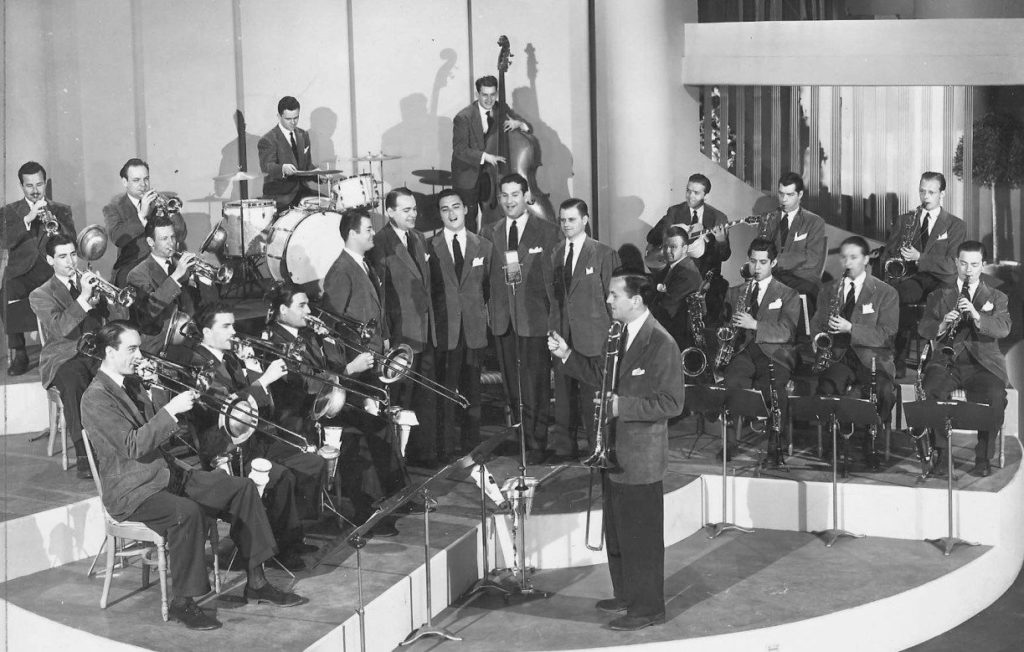
Downloads
PDF Version
Mobi Version
ePub Version
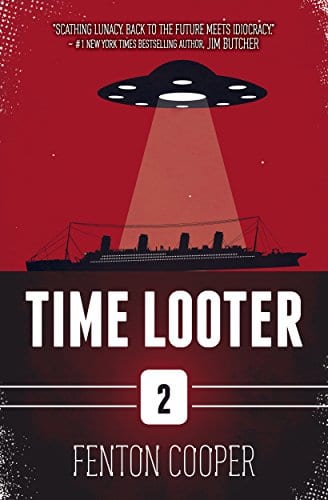
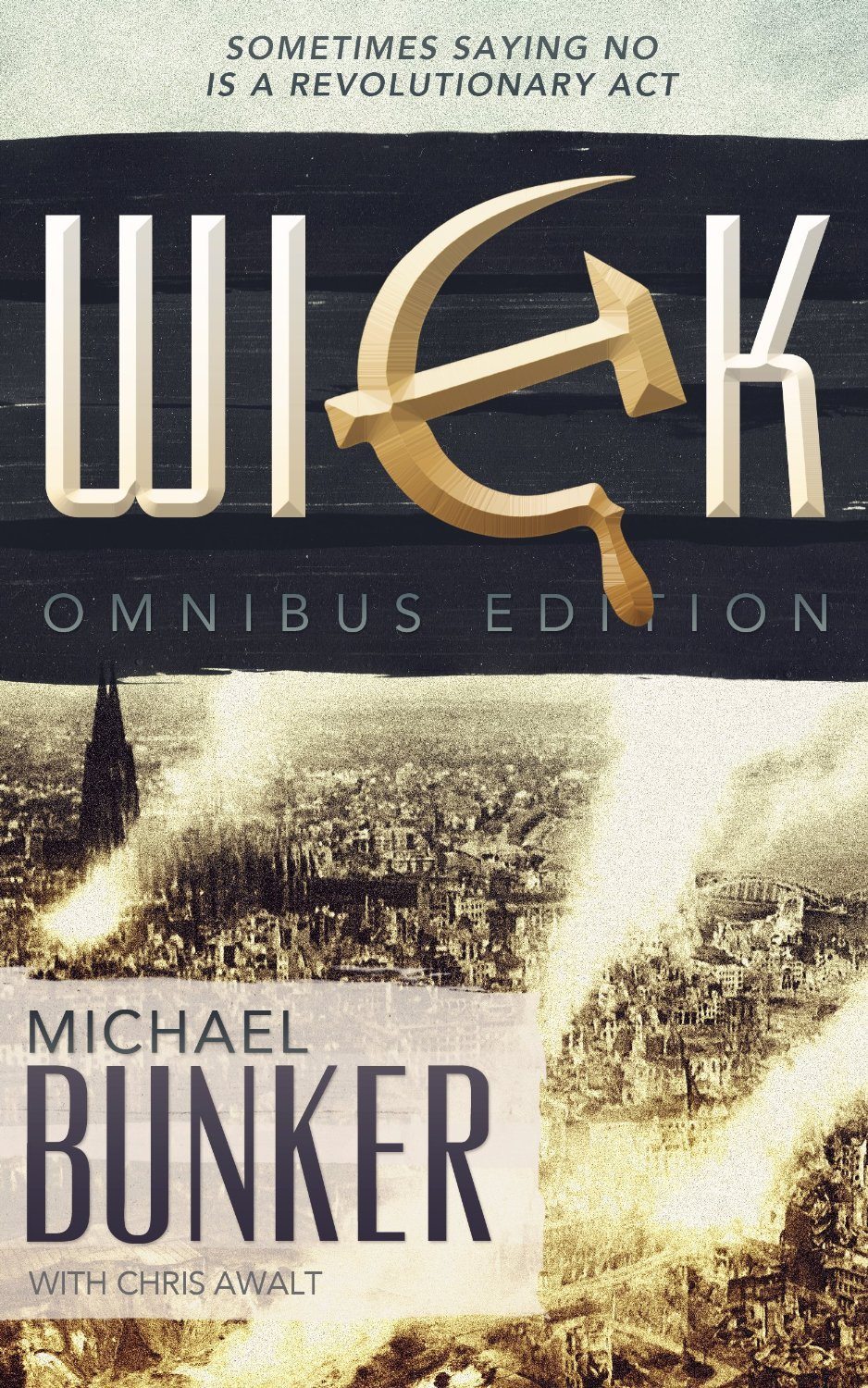
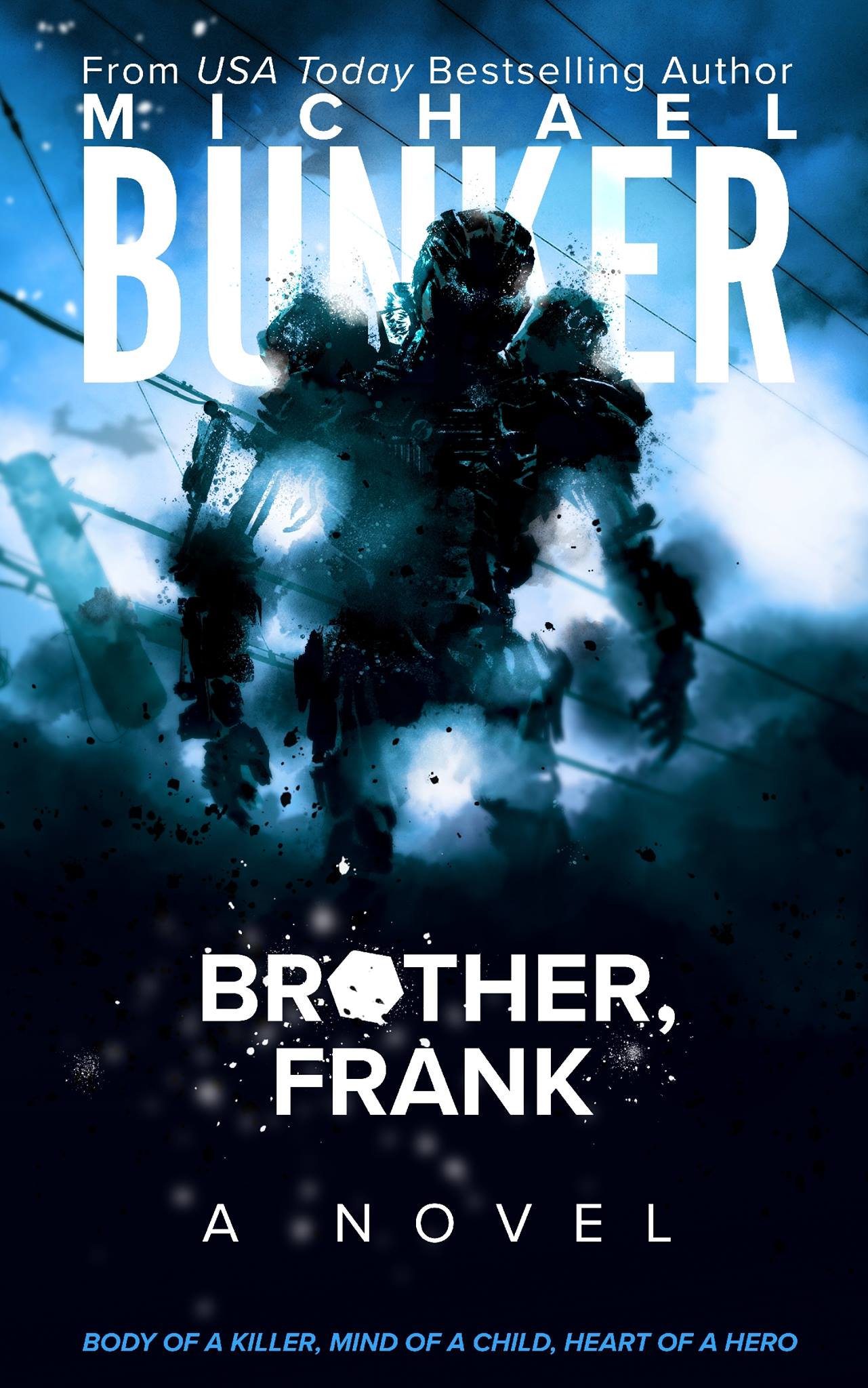
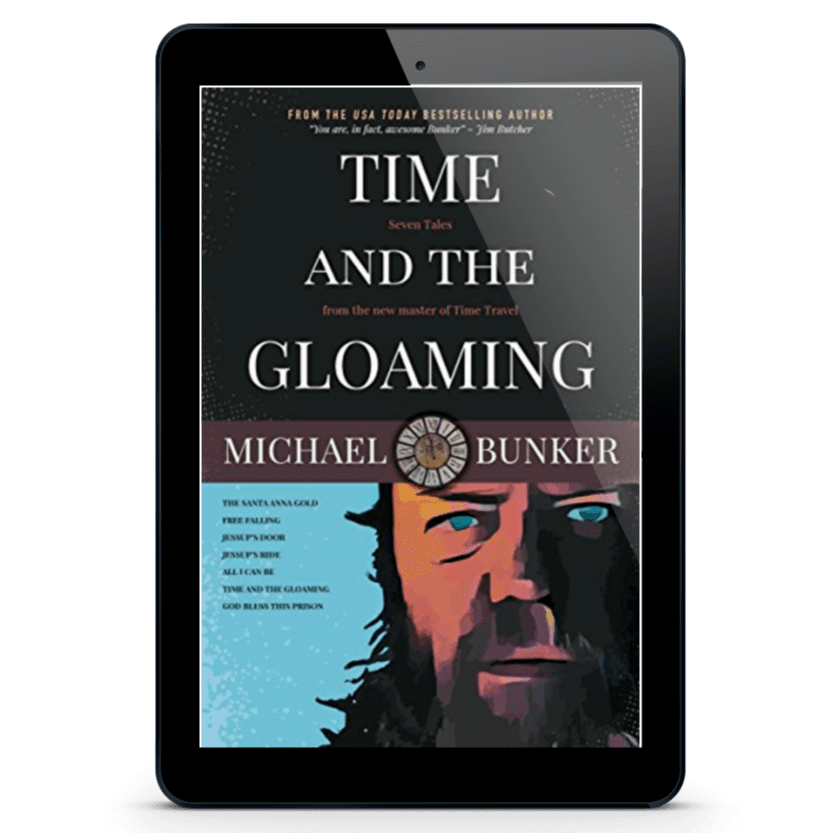
The plot may have thickened or the game may be afoot or some such thing, but I still don’t know where this thing is going. As I told some friends, though, it’s worth the price of admission for the mid century Americana alone.